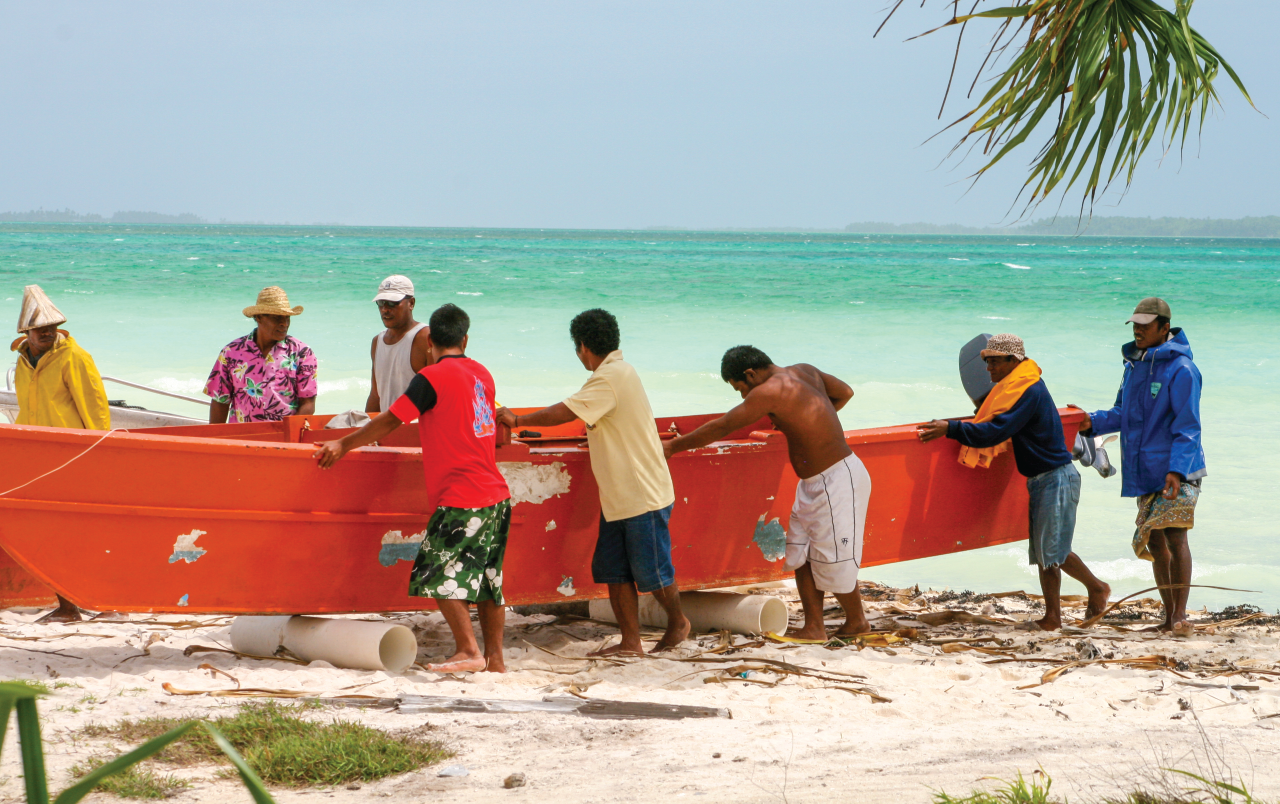This article was originally published by the OECD Development Matters blog.
The recent experience of a significant number of least developed countries (LDCs) graduating from that category has generated a certain level of interest in the development discourse. The Commonwealth Secretariat’s latest report is a welcome addition to that. It presents a cogent picture of the accomplishments and challenges that the 14 Commonwealth LDCs have experienced over the past decade. Five of these LDCs, Bangladesh, Kiribati, Solomon Islands, Tuvalu and Zambia, are poised to graduate in this decade.
Graduating Commonwealth LDCs are more vulnerable
The first message of the report underlines the enduring structural handicaps that graduating Commonwealth LDCs face. This is particularly true for the three low-income Small Island Developing States (SIDS), Kiribati, Solomon Island and Tuvalu. The latest triennial review on LDCs carried out by the United Nations Committee for Development Policy (UNCDP) states that although Kiribati, Solomon Islands and Tuvalu met the per capita GNI and Human Assets Index (HAI) criteria for LDC graduation, they were not able to reach the necessary threshold of the Economic and Environmental Vulnerability Index (EVI). Added to that, the 2022 CDP report notes that the COVID-19 pandemic had a significant economic and social impact in these countries and all graduating Commonwealth SIDS were found to face “high institutional and social fragility”.
For the other two (Bangladesh and Zambia), their economic vulnerability is exacerbated further by a lack of economic diversification and export product concentration. Although Bangladesh has managed to meet all three sets of LDC graduation criteria, its dependence on a single product – apparel – exposes its structural vulnerabilities. Zambia barely managed to meet the income and human assets criteria. It also fell into a deep recession in 2020 due to the impact of the pandemic, particularly on its mining and tourism industries.
Bangladesh, Kiribati, Solomon Islands and Zambia rank well below 100 in the latest Human Development Index. Bangladesh and Zambia also did poorly in the 2019 Global Competitiveness Index, ranking 105th and 120th respectively out of 141 countries (SIDS were not included in the ranking).
Need to revamp international support measures
Dedicated international support measures have definitely played a role in bolstering LDCs’ capacity to attain the graduation threshold. The second message in the Commonwealth Secretariat’s report suggests that even the upwardly moving LDCs in the Commonwealth group will require international development support for some time to come to ensure their smooth transition. The ongoing pandemic (not to mention the Ukraine crisis) has particularly accentuated this need.
Even for Bangladesh, the positive outlier among the five graduating Commonwealth LDCs, post-graduation loss of duty-free and quota-free market access for its exports, particularly to the European Union (EU), together with the UK, will have serious socio-economic consequences for the country. The loss of the pharmaceutical waiver under the WTO treaty on Trade-related Intellectual Property Rights (TRIPS) will also have negative ramifications for both the industry and Bangladesh exports.
The preferential trade schemes for graduating Commonwealth LDCs will be phased out in three to five years. Support to these countries in areas such as aid for trade and technology transfer will also be gradually eliminated. An omnibus proposal to extend trade-related preferences to graduating LDCs is currently under negotiation at the WTO. The EU has also been requested to grant special access to its Generalised Scheme of Preferences Plus scheme.
Bangladesh and Zambia, being lower middle-income countries, are steadily losing their eligibility to receive grants and other concessional finance. However, preferential treatment by some international financial institutions, such as the World Bank, will continue for the three graduating SIDS under a special provision.
Other dedicated funds such as the Least Developed Countries Fund under the UNFCCC will also no longer be available to the five Commonwealth LDCs after graduation. Furthermore, the cut-off income threshold (average per capita income of USD 1630 over the past three years) by GAVI, the Vaccine Alliance will deny access to four out of the five Commonwealth graduating LDCs. Only Zambia has an average per capita income lower than the threshold.
More often than not, issues related to intellectual property rights (IPR) receive little attention in the context of LDC graduation. The graduated LDCs would not only have to pay higher fees for global intellectual property registration under systems such as the Patent Co-operation Treaty, but must also comply with all IPR requirements. Graduating LDCs need substantive capacity development support, including from the World Intellectual Property Organisation (WIPO), in this regard.
These countries need to engage with UNCDP’s enhanced monitoring mechanism for graduating LDCs so that the international development community may be alerted on time for urgent support measures.
Domestic reforms are equally important
The final message relates to one of the understated issues in LDC graduation discourse – the need for domestic structural reforms. The 2022 Index of Economic Freedom categorises Zambia as “repressed” and Bangladesh, Kiribati and Solomon Islands as “mostly unfree”. Robust policy reforms such as strengthening an enabling environment for private investment, including foreign direct investment, and improving quality of public expenditures remain a priority for graduating Commonwealth LDCs.
However, the most critical expectation from graduating Commonwealth LDCs concerns domestic resource mobilisation. Bangladesh – the strongest economy in the group – mobilises the least revenue as a percentage of GDP (less than 10%). A review of the development performance of previously graduated LDCs indicates the need for higher tax collection and foreign direct investment in the post-graduation phase.
Given their ranking in the Corruption Perception Index 2021, the five graduating Commonwealth LDCs have to improve their public and corporate governance systems by instilling greater transparency and accountability in state-led and market-based.
To conclude, the international development community would be well advised to extend group-related and country-specific support to graduating LDCs to prevent these countries from sliding back. However, the primary responsibility for sustainable graduation lies with the countries themselves: they have to demonstrate their commitment by undertaking transparent and accountable structural and policy reforms.


